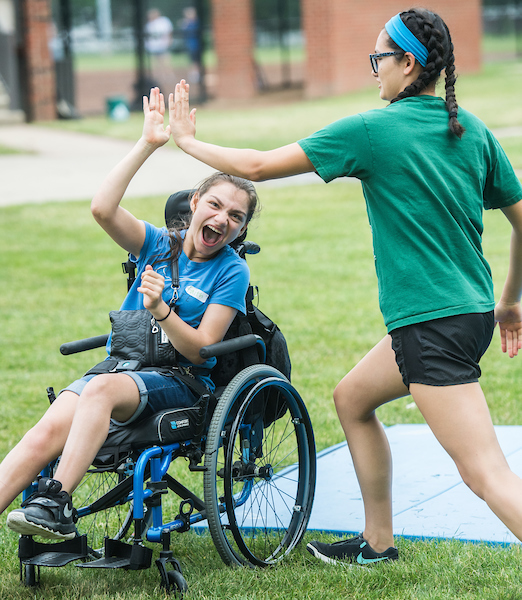In a world marked by complex international relations, diplomacy stands as a vital instrument for maintaining peace, resolving conflicts, and advancing global cooperation. Aspiring diplomats, those eager to shape international policies and represent their nations on the global stage, often find themselves on a challenging and competitive path. However, there exists a remarkable program that has been instrumental in nurturing the talents of future diplomats: KACMUN (Knowledgeable and Cultured Model United Nations). In this article, we will explore what KACMUN is, its significance, and how it shapes the diplomats of tomorrow.
What is KACMUN?
KACMUN, short for Knowledgeable and Cultured Model United Nations, is a prestigious program that immerses students and young professionals in the world of international diplomacy through Model United Nations (MUN) simulations. MUN conferences simulate the workings of the United Nations, allowing participants to take on the roles of diplomats, represent specific countries, and engage in debates on global issues.
What sets KACMUN apart from other MUN programs is its commitment to excellence and comprehensive approach. KACMUN is not merely a series of MUN conferences; it’s a holistic program designed to develop the skills, knowledge, and cultural sensitivity needed to succeed in the field of diplomacy.
The Significance of KACMUN
KACMUN holds immense significance for aspiring diplomats and international relations enthusiasts for several reasons:
- Experiential Learning: KACMUN provides hands-on experience in diplomacy. Participants engage in real-world problem-solving, negotiation, and debate, which are essential skills for diplomats.
- Networking: The program fosters connections with like-minded individuals and experts in the field. Participants often form lasting bonds with peers who share their passion for diplomacy.
- Cultural Understanding: KACMUN emphasizes the importance of cultural sensitivity and understanding. Diplomats must navigate the intricacies of diverse cultures, and KACMUN equips participants with this vital skill.
- Global Awareness: Through researching and representing different countries, KACMUN participants gain a broader understanding of global issues and perspectives, critical for diplomacy.
- Leadership and Public Speaking: Diplomats need to be effective communicators and leaders. KACMUN hones these skills by providing opportunities for public speaking and leading negotiations.
- Conflict Resolution: The program teaches conflict resolution strategies, a central aspect of diplomatic work. Participants learn to find common ground and build consensus.
- Career Advancement: KACMUN reputation opens doors for aspiring diplomats. Many KACMUN alumni have gone on to pursue successful careers in diplomacy and related fields.
The KACMUN Experience
The KACMUN experience is a journey of growth and development for participants. It typically consists of the following components:
- MUN Conferences: KACMUN hosts a series of MUN conferences where participants represent different countries and engage in debates on a wide range of global issues. These conferences are meticulously organized to simulate the United Nations accurately.
- Training Workshops: KACMUN offers training workshops that cover various aspects of diplomacy, including research, negotiation, public speaking, and cultural awareness. These workshops are conducted by experienced diplomats and experts in international relations.
- Cultural Experiences: To emphasize cultural sensitivity, KACMUN often includes cultural events and experiences, such as international cuisine nights, language lessons, and cultural performances.
- Networking Opportunities: Participants have the chance to interact with diplomats, academics, and professionals in the field during KACMUN events. These interactions provide valuable insights and networking opportunities.
- Research and Preparation: To excel in MUN conferences, participants must conduct thorough research on their assigned countries and issues. KACMUN encourages participants to delve deep into their topics, fostering a commitment to research and analysis.
- Leadership Roles: As participants gain experience, they can take on leadership roles within KACMUN, organizing events, chairing committees, and mentoring newer members.
KACMUN Alumni Success Stories
One of the most compelling aspects of KACMUN is its track record of producing successful diplomats and leaders in international relations. Here are a few notable KACMUN alumni and their achievements:
- Diplomat at the United Nations: Several KACMUN alumni have gone on to become diplomats representing their countries at the United Nations. Their experience in gave them a strong foundation for their diplomatic careers.
- Foreign Service Officers: Many KACMUN participants have pursued careers in their countries’ foreign services, working in embassies and consulates around the world.
- Policy Analysts: KACMUN alumni often find opportunities in policy research and analysis, helping shape their countries’ foreign policies.
- International Organization Leaders: Some KACMUN alumni have risen to leadership positions in international organizations, contributing to global peace and development.
- Academics and Researchers: KACMUN fosters a deep love for international relations and diplomacy, inspiring some alumni to pursue careers in academia and research.
Conclusion
In an increasingly interconnected world, the need for skilled diplomats who can navigate complex global issues has never been greater. KACMUN stands as the ultimate program for aspiring diplomats, offering a comprehensive and immersive experience that prepares participants for the challenges of diplomacy. Its emphasis on experiential learning, cultural understanding, and networking sets it apart as a premier program in the field of international relations.
For those with a passion for diplomacy and a desire to make a positive impact on the world stage, KACMUN provides the knowledge, skills, and opportunities needed to succeed. As we continue to face global challenges that demand diplomatic solutions, programs like play a crucial role in shaping the diplomats of tomorrow who will work tirelessly to promote peace, cooperation, and understanding on the world stage.


